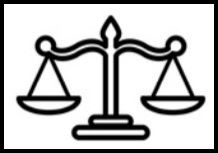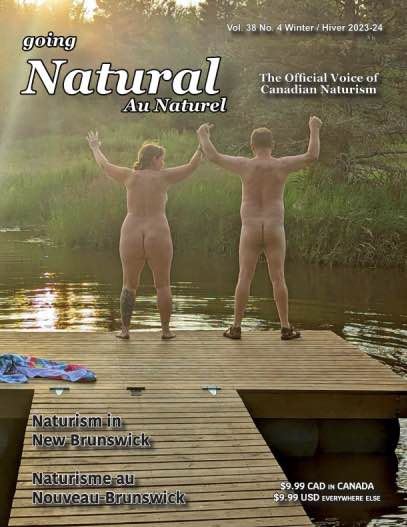Naturism, the Law, & You
Naturism in Canada has a rich and diverse history that spans decades. The general practice of nudity, particularly in the tradition of skinny dipping and sunbathing, has also been a part of our national heritage. However, the relationship between naturism, nudity, and the Law has not always been clearly defined and has at times been contentious. Federal laws that address public nudity are outlined in the Criminal Code. They are listed in Part 5, under the somewhat dubious heading "Sexual Offences, Public Morals, and Disorderly Conduct." They are primarily found in Section 174 where they are oddly placed between regulations regarding indecent acts in Section 173 and drunk and disorderly conduct in Section 175.
(a) is nude in a public place, or
In a few cases, the reference of "lawful excuse" may allow some leeway for those who are nude in public. A prime example of this is discreet nudity, such as when a person swims or sun bathes nude on a secluded stretch of beach. A legal precedent was established for nude sunbathing in 1971, in the case of R. v. Beaupré, British Columbia Supreme Court. A similar precedent was established for skinny dipping a few years later in the case of R. v. Benolkin, Saskatchewan Court of the Queen’s Bench in 1977. Another type of circumstance in which nudity may take place without penalty is peaceful public protest. One of the first reported examples of nudity as part of a public protest in Canada involved the Doukhobors, a religious sect based in Manitoba that organized protests in the early part of the 20th century. More recently, the World Naked Bike Ride is a modern-day example of a peaceful nude protest. Organized to raise awareness of oil dependency, this annual event takes place at several locations in Canada and around the world, with thousands of cyclists participating. Beyond these circumstances, how do these laws relate to those whose nudity is not confined to an isolated beach or a public protest? What about everyday people who merely want to be nude for its simple enjoyment, with no intention to "offend against public decency or order"? For these individuals, Canadian laws regarding nudity can be a grey area, one difficult to navigate. Furthermore, these laws may be applied in ways that are neither consistent nor fair. To begin with, the stipulation in Section 174 that prosecution for nudity cannot take place without the consent of the Attorney General is frequently side-stepped by law officials who simply apply alternate charges. For example, those who are nude as part of peaceful public protest have been charged with disorderly conduct. Nude sunbathers and swimmers who attract the attention of a warden at a Federal or Provincial Park are commonly charged with trespassing. In the same way that nudity laws are grouped with regulations regarding unsavoury behaviour, so too do naturists risk being charged under laws typically associated with exhibitionism, intoxication, or common nuisance. From a broader perspective, it is important to understand that the issue of naturists' rights are not necessarily limited to nudity within public view, nor are they confined to Section 174 of the Criminal Code. For example, naturist parents may find themselves unfairly targeted by social service agencies who regard their lifestyle as suspicious. In other cases, individuals who want to establish a naturist club are stonewalled by their local municipality in obtaining zoning approval. In these situations, what lies at the heart of these matters is more than a question of where and when a person can be nude; they are essentially human rights.
To stand up for the rights of naturists across Canada, the Federation of Canadian Naturists (FCN) is committed to legal advocacy. Some examples of this work include the following:
Like many forms of legal advocacy, the Federation of Canadian Naturists' efforts to defend and advance the rights of naturists require considerable time and investment. Despite these challenges, they remain committed to these efforts as part of their mission statement, to foster "a greater understanding, acceptance, and appreciation of naturism as a way of life throughout Canada." FCN Position Statement on Section 174 of the Criminal Code Additional readingAlthough nudity is directly addressed in section 174 of the Criminal Code, "Indecent Acts" and "Exposure" are addressed in section 173. Click here to read the statute. To read about the precedent-setting 1996 Gwen Jacob case that brought in top-free rights for women in Ontario, click here. |







